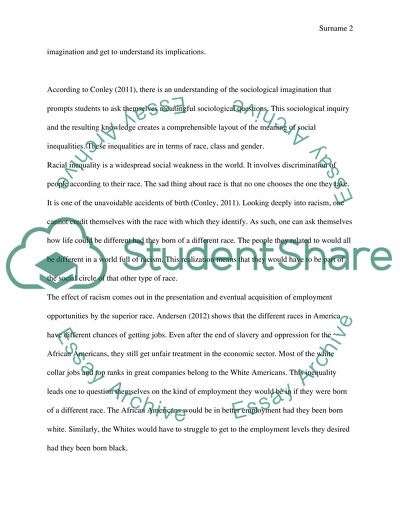Cite this document
(“Define and discuss the sociological imagination completely, and apply Essay - 1”, n.d.)
Retrieved from https://studentshare.org/sociology/1684692-define-and-discuss-the-sociological-imagination-completely-and-apply-it-in-race-class-and-gender-inequality
Retrieved from https://studentshare.org/sociology/1684692-define-and-discuss-the-sociological-imagination-completely-and-apply-it-in-race-class-and-gender-inequality
(Define and Discuss the Sociological Imagination Completely, and Apply Essay - 1)
https://studentshare.org/sociology/1684692-define-and-discuss-the-sociological-imagination-completely-and-apply-it-in-race-class-and-gender-inequality.
https://studentshare.org/sociology/1684692-define-and-discuss-the-sociological-imagination-completely-and-apply-it-in-race-class-and-gender-inequality.
“Define and Discuss the Sociological Imagination Completely, and Apply Essay - 1”, n.d. https://studentshare.org/sociology/1684692-define-and-discuss-the-sociological-imagination-completely-and-apply-it-in-race-class-and-gender-inequality.


